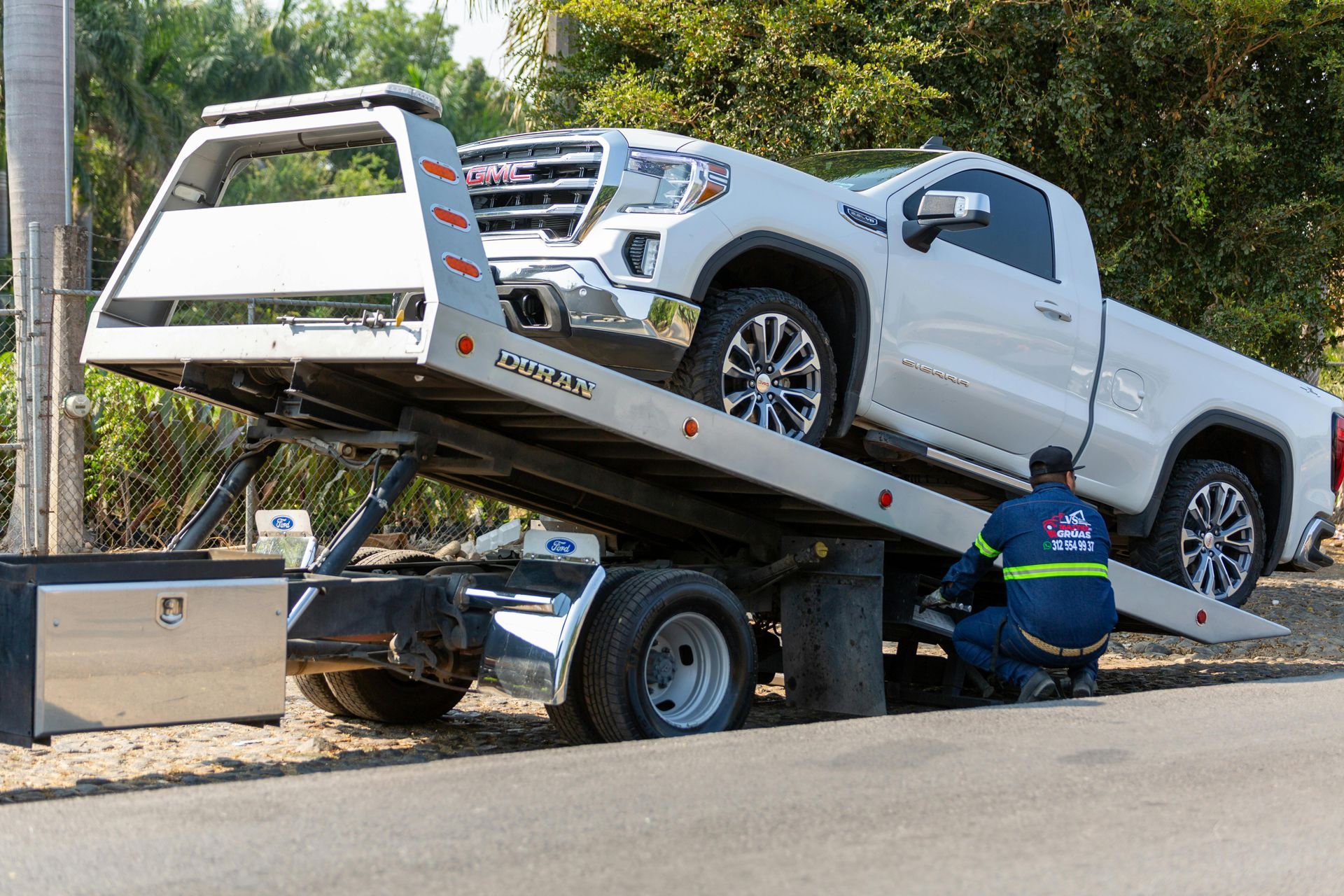Blog

By Grant Grosgebauer
•
25 Apr, 2024
If you are arrested for driving under the influence (DUI) or driving while ability impaired (DWAI) in Colorado, your driver's license can potentially be suspended by the Department of Motor Vehicles (DMV) - even before you are convicted of the offense. Understanding the DMV consequences is crucial to protect your driving privileges. License Suspension After DUI/DWAI Arrest In Colorado, if you are arrested for DUI or DWAI and refuse to submit to a chemical test (breathalyzer, blood test, etc.), your license can be automatically suspended by the DMV for at least 1 year upon arrest. Colorado's Express Consent Law requires any driver to consent to a chemical test if a police officer has reasonable grounds (or probable cause to believe the person is driving under the influence or their ability to operate a motor vehicle is impaired because of alcohol, drugs or both. Colorado revokes driving privileges for any individual who fails to cooperate with the chemical testing process requested by an officer during the investigation of an alcohol or drug-related DUI arrest (CRS 42-2-126). A first time refusal results in a one year revocation and a Persistent Drunk Driver designation. This designation requires the person to complete a Level II Alcohol and Drug Education and Treatment program. In addition, the person must hold a restricted license (Ignition Interlock) for a minimum of two years upon restoration or his or her driving privileges (CRS 42-2-132.5). Even if you take the chemical test and fail by having a blood alcohol concentration (BAC) above the legal limit of 0.08% for DUI, the DMV can still suspend your license after an arrest. Often times, if you elect a breath test and you are over the limit within two hours of driving, the officer will take your license immediately. Given that the results of the blood test can take longer to process, your license will not be disturbed until the results are received. In that case, a revocation letter may be mailed to your address on file. These administrative suspensions through the DMV happen separately from the criminal DUI/DWAI case. You only have a limited number of days after your arrest to request a DMV hearing to try to save your license. License Suspension/Revocation After DUI/DWAI Conviction If you end up pleading guilty or are convicted of DUI or DWAI in court, you will face additional DMV penalties, as drunk driving convictions add a certain amount of points to your license. A conviction for DUI will result in 12 points being assessed against your license, while a DWAI will result in 8 points. This distinction is critical for most adult drivers, as the DMV may suspend your license if you accrue 12 points in a calendar year. The DMV may also require you to install an ignition interlock device in your vehicle and pay fees to regain your driving privileges after the revocation period. Fight to Protect Your License The penalties for DUI and DWAI can extend far beyond just fines and potential jail time. With your ability to drive hanging in the balance through DMV suspensions and revocations, it's critical to mount a strong defense from an experienced DUI/DWAI lawyer like those at Tucker Legal Group. Our attorneys understand all the DMV processes and requirements, and can fight to prevent you from losing your license or get it reinstated as quickly as possible after an arrest or conviction. Don't put your driving privileges at risk - contact us today for a free consultation on your DUI or DWAI case.

By Grant Grosgebauer
•
27 Mar, 2024
For young adults convicted of violent felonies in Colorado, there is an alternative to serving time in the standard adult prison system - the Youthful Offender System (YOS). **CASE HIGHLIGHT** We recently had a client facing decades in prison on very serious charges, to include several counts of attempted murder - extreme indifference (a class 2 felony), and aggravated robbery with a deadly weapon (a class 3 felony). When our firm got on the case the offer from the district attorney was to serve more than 30 years in prison. After intense rounds of negotiations and additional investigation, our client was offered a 4 year sentence to YOS with suspended prison time upon successful completion of the program. This was a tremendous result for our client, and one that would not be possible without the experience of our criminal defense attorneys Adam Tucker and Grant Grosgebauer. This article will break down many of the common questions surrounding the YOS program, from what the program is, to who is eligible, and provide helpful information for anyone facing serious felony charges as as juvenile or young adult. What is the Youthful Offender System? The YOS is a specialized medium-security detention facility located in Pueblo, Colorado. It focuses on rehabilitation over punishment through education, counseling, and vocational training rather than a purely punitive environment. The Youthful Offender System (YOS) was established as a result of legislation enacted in the 1993 Special Session of the Colorado Legislature. YOS is a Colorado Department of Correction’s facility designed as a comprehensive model that delivers habilitation programs and services that prepare individuals for successful re-entry while providing for public safety. The Youthful Offender System delivers a four-part continuum of services: Orientation and Training Phase (OTP), Phase I (institutional); Phase II (pre-release); and Phase III (community supervision) all of which are administered by the Division of Prisons. The Youthful Offender System holds a unique and distinct place in the State’s correctional system. According to recent reports, around 75% of offenders sentenced to YOS will complete the program successfully. Compared to adult prisons, the Youthful Offender System has significantly lower recidivism rates. However, completing the intensive program is known to be very challenging. For more information, reference Colorado Revised Statute 18-1.3-407. Who Is Eligible for YOS? Only offenders between 14-19 years old convicted of eligible violent felonies and crimes of violence like assault, robbery or murder can potentially receive a YOS sentence at the judge's discretion. Those with juvenile offenses or Class 1 felonies are ineligible. Further, while a criminal case can take sometimes years to resolve, YOS can admit offenders up to 24 years old. That said, bed space is limited to 256 people, so each offender must be approved by the warden of the facility before admittance. Key Differences in a YOS Sentence A YOS sentence differs from a standard conviction in several ways: The judge suspends the typical jail sentence YOS terms are shorter determinate sentences (2-7 years max) No time is credited for time served pre-sentencing The adult felony remains on the offender's record after YOS completion While a YOS sentence may seem more favorable upfront compared to a lengthy prison term, failure to complete the program will result in having to serve the originally suspended sentence. Effective Advocacy Is Critical Receiving a Youthful Offender System placement requires an in-depth understanding of Colorado's complex sentencing laws and judicial system. Our skilled attorneys meticulously examine every case to identify all potential alternatives and sentencing options for young clients. Don't risk your freedom with an overly punitive sentence. Allow the Tucker Legal Group's expertise to guide you through Colorado's Youthful Offender System. Contact us for a consultation.

By Grant Grosgebauer
•
20 Mar, 2024
Being charged with a drug crime like possession, manufacturing, or distribution of drugs can have devastating consequences in Colorado. However, law enforcement must still follow strict constitutional guidelines when conducting searches, seizures, and arrests. At the Tucker Legal Group, our criminal defense team is comprised of recognized experts with decades of experience in analyzing search and seizure issues specific to drug offenses. We provide aggressive legal representation to ensure your rights were not violated and hold police accountable for any misconduct or overstepping of their authority. Police Cannot Search You or Your Property Without Proper Justification or Without a Warrant Law enforcement cannot simply search you, your vehicle, home, phone or other property anytime they wish without meeting legal standards. Under the Fourth Amendment, officers must have either a valid search warrant based on probable cause of criminal activity, or a n applicable exception to the warrant requirement. Exceptions to the Warrant Requirement Examples of exceptions to the warrant requirement recognized by the United States Supreme Court and Colorado Courts include: The Plan View Doctrine Exigent Circumstances Hot Pursuit Search Incident to Lawful Arrest Consent Inevitable Discovery Independent Source Doctrine Any evidence obtained through an unlawful search and seizure could be inadmissible due to the exclusionary rule and "fruit of the poisonous tree" doctrine. The analysis the court must conduct is typically very complex and multi-faceted. The Prosecution may argue that multiple exceptions apply, or that one exception, like inevitable discovery, cures an earlier improper search. Challenging Illegal Searches and Suppressing Evidence Our attorneys meticulously examine all aspects of how evidence was gathered against you, including: The legality of the initial police stop, detention or arrest, including any pre-text for the contact Compliance with warrant requirements under C.R.S. 16-3-303. Probable cause and veracity challenges to affidavits attached to search warrants If law enforcement overstepped constitutional limitations, we will file motions to suppress any illegally seized evidence. Getting key drug evidence thrown out or suppressed can severely weaken the prosecution's case or potentially lead to dismissal or charges. Don't risk a drug crime conviction based on compromised searches and seizures. Hire a drug lawyer to protect your rights and liberty with proven defense strategies. Our expertise in Colorado search and seizure laws provides strategic advantages to fight charges successfully. Contact us for a free, confidential consultation.

By Grant Grosgebauer
•
21 Feb, 2024
At the Tucker Legal Group, our unique approach to defending domestic violence cases yields serious results for our clients. In January and February 2024 alone, attorneys Adam Tucker and Grant Grosgebauer have secured 5 outright case dismissals for clients facing domestic violence charges: Case dismissed on the eve of trial for a client facing domestic violence charges including disorderly conduct and criminal mischief in Denver County. Case dismissed the week before trial for a client facing domestic violence charges including violation of a protection order in Denver County. Case dismissed the week before trial for a client facing domestic violence charges including violation of a protection order in Denver County. Case dismissed before trial for a client facing domestic violence assault and harassment charges in Jefferson County. Case dismissed for a client facing felony level domestic violence charges involving criminal mischief and harassment in Douglas County. Domestic violence cases can be sensitive and difficult to navigate, and the consequences of a conviction can have life-altering consequences. At the Tucker Legal Group our winning strategy is simple, yet hard-earned; we are known for being serious trial lawyers. While other lawyers may encourage you to take a deal or settle, we prepare from the outset to aggressively defend your interests at trial. When prosecutors know that your attorney has a track record of success at trial, they are forced to take a hard look at their evidence. If you've been charged with a domestic violence crime in Colorado, the attorneys at the Tucker Legal Group are here to provide an effective defense strategy tailored to your unique situation. What does it mean to be charged with a crime as an act of Domestic Violence? In Colorado, domestic violence (DV) is defined as an act or threatened act of violence against someone with whom the accused is or has been involved in an intimate relationship. This includes spouses, ex-spouses, dating partners, co-parents, and other close relations. DV is not an independent crime in itself but rather a sentencing enhancement that increases the penalties for offenses committed against intimate partners. Common charges involving a DV enhancement include; Assault (CRS 18-3-202 – 204) – knowingly or recklessly causing injury to another. Stalking (CRS 18-3-602) – credible threats or repeated behaviors that cause emotional distress. Harassment (CRS 18-9-111) – pushing, repeatedly contacting, or following someone in public. Child abuse (CRS 18-6-401) – any type of harm to a child under 16, this includes if an assault takes place in the presence of a child. Menacing (CRS 18-3-206) – threatening imminent harm to another, typically with a deadly weapon. False imprisonment (CRS 18-3-303) – unlawful and non-consensual detention. Violating a restraining order (CRS 18-6-803.5) – contacting a protected party either directly or indirectly. Criminal mischief (CRS 18-4-501) - knowingly damaging a thing of value. The Consequences of Domestic Violence Charges Even misdemeanor DV convictions can result in fines, probation, counseling, and a permanent criminal record that impacts housing, employment, and other opportunities. Felony convictions can mean years in prison. A fourth DV conviction leads to habitual offender status - a class 5 felony carrying 1-3 years in state prison. Beyond the criminal penalties, DV charges can affect child custody, professional licenses, military status, and the ability to possess firearms. Non-citizens may face deportation. The Legal Process in DV Cases Law enforcement takes domestic violence extremely seriously in Colorado. It is a mandatory arrest state, meaning officers must make an arrest if they have probable cause. DV cases are also fast-tracked, with incident reports and initial pleas entered right away. Even if the alleged victim recants or doesn't want to press charges, prosecutors often still pursue cases based on other evidence like videos, witnesses, etc. Victims who change their story are assumed to have ulterior motives. Building a Vigorous Defense At the Tucker Legal Group, we understand the complexities involved in DV cases and work tirelessly to advocate for our clients' rights and future. This includes thoroughly examining all evidence, testimony, and circumstances surrounding the alleged incident. Possible defense strategies include showing the incident was a misunderstanding, an act of self-defense, or that no intimate relationship existed in the first place. We may also pursue pre-trial diversion programs, deferred sentencing, plea bargains, or post-conviction record sealing when appropriate. No matter how difficult the situation seems, there are pathways to the best possible outcome. Contact us today for a free, confidential case review. Our compassionate counsel and aggressive defense are here to fight for you.

By Grant Grosgebauer
•
23 Jan, 2024
If you've been involved in an accident or suffered an injury in Colorado, you've likely seen the TV commercials and billboards for personal injury law firms promising big payouts. But flashy advertising doesn't equal great legal representation. At the Tucker Legal Group, we provide an entirely different experience for clients. TV and billboard lawyers typically operate high volume practices that make it impossible for them to give each case close, personalized attention. The reality is you'll likely never meet or speak with the actual attorney. Your case gets handed off to teams of paralegals you'll never meet. At the Tucker Legal Group, we provide white glove treatment and always make direct communication with our knowledgeable attorneys a priority: You'll get our personal cell phone numbers and have direct access to us anytime. We establish true relationships and really get to know our clients one-on-one. Our smaller, tight-knit legal team is dedicated to your case. No hand offs to anonymous staff. We clearly explain who is working on each aspect of your case and keep you informed every step of the way. Our dedicated, compassionate attorneys and staff will answer your calls and emails promptly. We tailor our legal strategy specifically to the details of your unique situation. You deserve the very best legal advocacy and an attorney who will fight passionately on your behalf. The Tucker Legal Group has decades of combined experience obtaining favorable verdicts and settlements for injury victims in Colorado. Contact us today for dedicated legal representation you can count on.

By Grant Grosgebauer
•
19 Jan, 2024
Being in an accident caused by a driver without adequate insurance often leaves victims struggling with financial hardship from medical bills, lost wages, and other damages. Thankfully, Colorado law allows you to file an underinsured motorist (UIM) claim with your own insurer to get the maximum compensation you deserve. The dedicated attorneys at Tucker Legal Group leverage our in-depth knowledge of Colorado insurance laws and years of litigation experience to thoroughly investigate all potential sources of coverage and ensure you receive full and fair payment. Here's how we can help maximize your Colorado UIM claim: What is a UIM Claim in Colorado? UIM coverage in Colorado provides benefits when the at-fault driver's liability payout is insufficient to fully cover your losses. For example, their policy pays $25,000 but your damages total $100,000. Your UIM may pay the $75,000 difference. Who Can File a UIM Claim in Colorado? Those insured under their own Colorado auto policy may potentially make a UIM claim after an accident with an underinsured driver, depending on specific eligibility terms. Drivers may also be covered by UIM policies belonging to other members of their household. Why File a Colorado UIM Claim? Pursuing compensation through your UIM allows recovery up to your policy limits, filling the gap left by the other driver's lack of sufficient coverage. This helps protect you from major financial losses. How We Maximize Your Colorado UIM Claim: Analyze Policies - We'll review all applicable insurance policies to find all potential sources of coverage for your losses. Prove Damages - Our team thoroughly investigates accidents and gathers evidence to build strong cases proving full damages. Demand Maximum Settlement - We leverage litigation experience and negotiating tactics to demand insurers pay full Colorado UIM policy limits. Litigation - If insurers refuse reasonable settlement, we're fully prepared to take legal action against them. Don't leave money on the table. The attorneys at Tucker Legal Group will pursue maximum compensation from every available source, including making the most of your Colorado UIM coverage. Contact us for a free consultation.

By Grant Grosgebauer
•
11 Jan, 2024
Being in a car accident can be a traumatic and stressful experience. Your first priorities should be seeking medical attention and reporting the accident to your insurance company. However, there are important legal steps you should take as well to protect your rights to fair compensation. Consulting with an experienced personal injury attorney is highly recommended. At Tucker Legal Group, we assist car accident victims in recovering damages for their injuries, pain and suffering, property damage, and other losses. Here is an overview of the legal process following an auto accident and how having a lawyer can make a major difference in the outcome of your case: Document the Scene - Take photos and videos of damage, skid marks, debris, street signs, weather conditions, and anything else relevant. Get contact info for witnesses. This evidence will be crucial later. Get Medical Treatment - Seek immediate medical care even for minor injuries, which could worsen over time. Your medical records will help verify your injuries and treatment needs. Report to Your Insurance Company - Alert your insurer about the accident as soon as possible, but avoid discussing details or admitting fault. Ask about your policy's injury and accident benefits. Do Not Settle Too Quickly - The insurance company may pressure you to accept a quick settlement before the full extent of your injuries and losses are known. Have an attorney negotiate on your behalf. Consult an Attorney - An experienced lawyer understands the claims process, liability laws, and negotiating tactics. They will deal with the insurance company while you focus on recovery. Investigation - Your attorney will order accident reports, take witness statements, collect medical records, consult experts, and fully investigate the accident circumstances. File a Claim - The lawyer will present a demand letter to the insurance company detailing your damages, requested compensation, and legal arguments. If rejected, a personal injury lawsuit may be filed. Negotiate a Settlement - Your lawyer will negotiate aggressively, backed up by evidence and legal authority, to obtain a fair settlement. Over 90% of injury claims settle out of court. Trial - If no settlement is reached, then your case would proceed to trial where your attorney will passionately argue your case before a judge and jury. The accomplished personal injury trial attorneys at Tucker Legal Group have a proven track record obtaining maximum compensation for accident victims. Don't leave your claim in the hands of an insurance company looking out for their own interests. Contact us today for a free consultation and case evaluation.

By Grant Grosgebauer
•
03 Jan, 2024
Facing a DUI charge in Colorado can be extremely worrisome and stressful, but it doesn’t have to be. The attorneys at the Tucker Legal Group have handled hundreds of DUI cases, achieving favorable results for their clients. Our success stems from our approach - we start from the position of holding the district attorney to their burden, proving the case against you beyond a reasonable doubt at trial. When you begin with the mindset that the case is going to trial, you can evaluate it on the merits. We know every client’s situation is different, but starting in a trial mindset yields the best outcomes; be it more acceptable plea offers or acquittals. In the below guide we will share some common themes in DUI cases and many of the strategies we use to defend our clients. Other lawyers will simply recite the relevant laws, but we will tell you in relatable terms what those laws mean and how they matter to your case. What are Colorado’s DUI Laws? Colorado DUI laws make it a criminal offense to operate a car or some other motorized vehicle (yes, this may include those little scooters you see everywhere downtown) under the influence of alcohol, drugs, or both. Like all criminal offenses, the district attorney that files the case must prove the charges against you beyond a reasonable doubt. “Driving under the influence” means driving a vehicle when a person has consumed alcohol or one or more drugs, or a combination of alcohol and one or more drugs, which alcohol alone, or one or more drugs alone, or alcohol combined with one or more drugs affect such person to a degree that such person is substantially incapable , either mentally or physically, or both mentally and physically, of exercising clear judgment, sufficient physical control, or due care in the safe operation of a vehicle. C.R.S. § 42-4-1301(1)(f). That lengthy definition really boils down to being “substantially incapable” of driving your car. In short, the district attorney has to prove two things: 1) that you were driving, and 2) that you were drunk or high to the level of substantial impairment. If the district attorney cannot prove both of the above points, the jury must render a verdict of not guilty. And thus lies the most common defenses used to beat DUI’s – either you were not actually driving, or you were not drunk to the level of being substantially incapable of driving. 1) What does it mean to drive or operate a motor vehicle? In Colorado, driving involves not only normal uses, like driving on the roadways, but also involves being in “actual physical control” of a vehicle. People v. Swain , 959 P.2d 426 (1998). This means simply sitting in the driver’s seat with the car on may be considered driving. Other factors may also influence the jury’s determination if you were driving: whether the keys are in the ignition and the car is running, if you were wearing a seatbelt, which seat you were in, etc. Ultimately, you could also be found to be driving based on direct or circumstantial evidence. Direct evidence is when someone sees you driving, be it a bystander or the police officer, or if you admit to driving after you’re contacted. Circumstantial evidence of driving may be found based on where you are parked (for instance if you were found asleep in the middle of the road) or if the car is parked terribly in some location. Common defenses attacking the driving component of a DUI charge include: arguing that you were in fact not the driver. Perhaps one of the occupants switched seats with you, or perhaps someone else drove your car to where you were ultimately found. It may also be the case that no one actually saw you drive or can put you in the driver’s seat. Many people also decide to simply sit in their car with the engine on during a cold winter night with no actual plan to drive the vehicle. Many people may also have open containers in the car and choose to pull over and partake. While not advisable, it may negate any argument that a person was drinking prior to driving their vehicle. 2) What does it mean to be “under the influence?” More commonly, the best defense may be in attacking that you were actually impaired to a certain degree while driving. As discussed above, driving under the influence requires proof beyond a reasonable doubt that you were substantially incapable of operating a motor vehicle based on consumption of alcohol, drug, or both. Proving someone was “substantially impaired” typically requires some evidence of bad driving, be it weaving in and out of lanes, or a traffic accident. Prosecutors will point to the totality of the evidence surrounding the traffic stop to point to elements of impairment: bad driving being a component, things called indicia of consumption (like the smell of alcohol on the breath, bloodshot and watery eyes, slurred speech, unsteady balance, etc.), any admissions you make to consuming alcohol or that you are coming from a location where alcohol consumption is ordinary (like a bar, wedding, or concert), performance on voluntary roadside maneuvers, and ultimately if you elected a blood/breath test, what the results of that showed. Roadside maneuvers (also knows as standardized field sobriety tests or “SFSTs”) are performed with one aim in mind – to find more evidence of impairment to be used against you at trial. It’s important to note, these roadsides tests are completely voluntary and your refusal to submit to them is almost always inadmissible at trial. When alcohol is involved officers will typically rely on three different types of tests: 1) Horizontal Gaze Nystagmus Test or “HGN”, 2) Walk and Turn, and 3) One Leg Stand. These tests are used all across the country and they purport to test someone’s level of impairment. The HGN test involves an officer holding out a light and asking you to track it as it is passed in front of your face several times. The walk and turn test involves taking a certain amount of steps on an imaginary line, turning and the end, and walking back on the same line. The one leg stand is self-explanatory, you are asked to pick a leg to balance on for a certain amount of time, any swaying or falling from this position is mark against you. There is no certain amount of points that will result in an arrest, rather these tests are taken together with other pieces of indicia to form the basis of a DUI charge. You may also be asked to take a portable breathalyzer test, these are also completely voluntary. The results of this test is inadmissible at a trial for DUI because it is well accepted that they produce inaccurate results. That said, officers may still use the results of this test to establish probable cause for arrest. Colorado is an express consent state when it comes to DUI laws. That means if you are arrested for DUI, you have already expressly consented to submitting to a blood or a breath test by driving on the roadways. You also have the option of refusing a test, unless there is evidence that raises to the level of vehicular assault or vehicular homicide, in which case you will be forced to submit to several blood draws. If you elected to take a test and your BAC was over .08, there is a permissible inference that you were driving under the influence. What does that actually mean? Not much it seems. A permissive inference “allows, but does not require, you to find a fact from proof of another fact or facts, if that conclusion is justified by the evidence as a whole.” Ultimately, the jury is free to use the fact of your BAC in whatever way they would like. If you refuse to take a chemical test, the jury may use your refusal to provide a test against you at trial, with the obvious inference being that you refused a test because you knew the results would show that you were intoxicated. Prosecutors have a built-in fall back if they cannot prove that you were “substantially incapable” of operating your vehicle under the DUI statute. They often will argue the lesser offense of DUI, Driving While Ability Impaired or “DWAI.” DWAI only requires proof that you were impaired to the “slightest degree” such that you were unable to operate your vehicle as you normally would. While this offense requires less proof, it also carries less consequences, specifically less points towards a driver's license suspension. Defenses to the intoxication elements of DUI are numerous. The most obvious is that you were not in fact drunk or high, that the officer was mistaken in what he was seeing. Perhaps the indicia the officer saw can be explained by some other factor, a medical episode for instance. You can also attack the roadside maneuvers as generally unreliable. Finally, you can attack certain elements of the blood or breath test. There are also ways to beat a DUI case even before trial. The reasonable suspicion, or the reason for the stop may be challenged. The lack of probable cause to arrest or invoke express consent may also be challenged. Ultimately, precedent surrounding DUI laws is extensive, and you need an experienced DUI lawyer in your corner to take on the prosecution and police. What are the penalties for a DUI? Colorado’s criminal sentencing and administrative penalties for DUI and the lesser included charge of DWAI become more severe with each successive conviction: For a first time DUI or DWAI, court’s mostly sentence offenders to probation, but are required by statute to impose probationary conditions like alcohol classes, community service, and a victim impact panel. A county jail sentence will also be imposed in addition to potential fines and court costs. A second offense carries a minimum 10 day jail sentence and also requires a lengthier probationary period and a longer suspended jail sentence depending on your successful completion of probation. A third offense requires a mandatory minimum 60 days jail, again with lengthy and stringent probationary terms. A fourth and subsequent DUI is upgraded to a class 4 felony, where the presumptive sentencing range is between 2 and 6 years in the department of corrections, but may also be eligible for lesser sentences like probation with a mandatory jail sentence attached. No matter the number of priors, every DUI matters, as the consequences of a conviction may follow you for the rest of your life. The attorneys at the Tucker Legal Group have handled hundreds of DUI cases, and successfully tried dozens throughout our careers. When it matters most to you, trust our team to help you beat your DUI. ***Disclaimer: this post is not designed to offer specific legal advice. Each case is different and precedent surrounding DUI laws frequently evolves, consult an attorney to discuss any legal concerns you may face.***

By Grant Grosgebauer
•
20 Dec, 2023
Adam Tucker and Grant Grosgebauer have been busy defending Tucker Legal Group clients in courtrooms across Colorado. Below are many of our successes from the month of December: Full acquittal at trial for a client facing Unlawful Sexual Contact charges in Adams County. Outright dismissal for a client facing a Stalking charge (a class 5 felony) in Denver County. Outright dismissal for a client facing a Second Degree Assault charge (a class 4 felony, crime of violence enhancer) in Douglas County. Entire statements suppressed for a client facing First Degree Murder charges in Arapahoe County. Experts excluded for a client facing First Degree Murder charges in Adams County. Reduced plea from an original DF1 charge (where the mandatory prison range is 8-32 years) down to a DF4 charge with probation. Reduced plea from an original DF1 charge for a client on parole (where the mandatory prison range is 12-32 years) down to a DF4 and misdemeanor gun charge, with 15 months of concurrent time. We know that each case is different and requires a tailored approach, but no matter the case, we have a track record of getting results for our clients. Call us today to set up a free consultation.

By Grant Grosgebauer
•
14 Dec, 2023
Family law encompasses a vast array of legal matters that deeply impact individuals and families. When facing familial challenges, understanding your rights and available options becomes paramount. Understanding Your Rights in Family Matters Family disputes, whether related to divorce, child custody, adoption, or domestic violence, often involve complex legalities. Familiarizing yourself with your rights within these contexts can be both empowering and instrumental in making informed decisions. For instance, in divorce cases, understanding the factors that influence property division, alimony, child custody, and support can significantly affect the outcome. Exploring Your Legal Options While facing family-related legal issues, seeking professional guidance and support is invaluable. An experienced family law attorney can offer personalized advice, assist in negotiations, and represent your best interests in court if needed. Their expertise not only provides legal insights but also emotional support during what can be a tumultuous time. Taking Action: The Role of a Family Law Attorney Choosing the right attorney can make a substantial difference in the resolution of family disputes. A skilled lawyer not only possesses a deep understanding of family law but also demonstrates compassion and empathy while handling sensitive matters. They strive to protect your rights, advocate for your interests, and navigate the legal complexities, ultimately aiming for the best possible outcome for you and your family.
© 2024
All Rights Reserved | The Law Office of Adam Tucker, P.C.
Powered by Levitate




